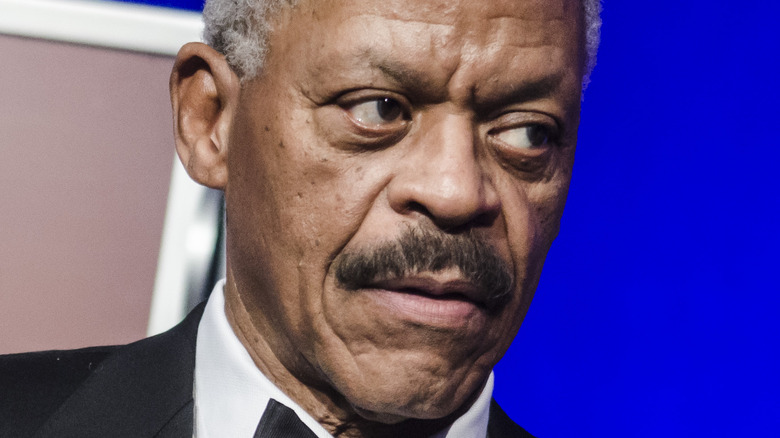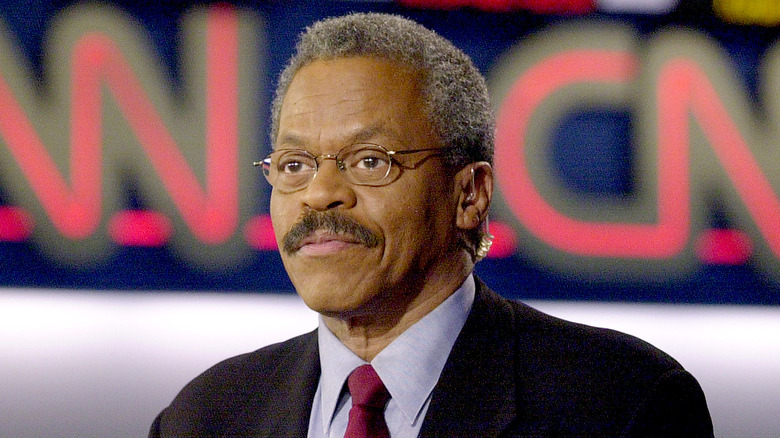The Tragic Death Of CNN Anchor Bernard Shaw
On September 7, iconic news anchor Bernard Shaw tragically died at age 82, his family revealed in a statement, CNN reported. Shaw, who was the first chief anchor of CNN, died due to "pneumonia unrelated to COVID-19," the reporter's family revealed. "In lieu of flowers, the family requests donations be made to the Bernard Shaw Scholarship Fund at the University of Chicago. The Shaw family requests complete privacy at this time," according to a statement former CNN CEO Tom Johnson delivered.
The CEO of CNN, Chris Licht, also released a statement in which he offered his condolences to Shaw's family. Additionally, Johnson, who knew Shaw for more than 55 years, opened up about how Shaw will be "remembered as a fierce advocate of responsible journalism." "As a journalist, [Shaw] demanded accuracy and fairness in news coverage," Johnson said. "He earned the respect of millions of viewers around the world for his integrity and independence." Many have taken to Twitter to honor Shaw's legacy, including CNN correspondent Omar Jimenez. "The example he set blazed a trail for so many. May he Rest In Peace," Jimenez wrote of Shaw. CNN chief national correspondent John King also posted a tribute, calling Shaw "a trailblazer and legend," as well as "a role model and example and mentor to so so many."
Bernard Shaw was a force in broadcast journalism
Reporter Bernard Shaw, who made a major impact on media, has sadly passed away. Shaw was born in Chicago, Illinois, in 1940 and went on to earn a bachelor's degree in history from the University of Illinois at Chicago in 1966. Following his graduation, he became a journalist and covered stories for major news outlets like ABC News prior to being hired at CNN, where he worked until his retirement in 2001. It was here that Shaw would report on some of the most prominent news stories of the era, including the start of the Persian Gulf War and the death of Princess Diana.
The longtime news anchor opened up about his aspirations to achieve great things as a journalist during a 2014 interview with NPR. "I wanted to be the best broadcast journalist I could be, and I wanted to emulate my idol — the first of two idols — Edward R. Murrow, and later, Walter Cronkite, who became a good friend for about 50 years," Shaw said. The news legend added that what he "strove for was perfection" with every story he covered. As CNBC wrote, this work ethic earned Shaw accolades such as being inducted into the Broadcasting & Cable Hall of Fame and earning a lifetime achievement award from the National Association of Black Journalists. The acclaimed reporter's indelible legacy will not soon be forgotten in the media world and beyond.


